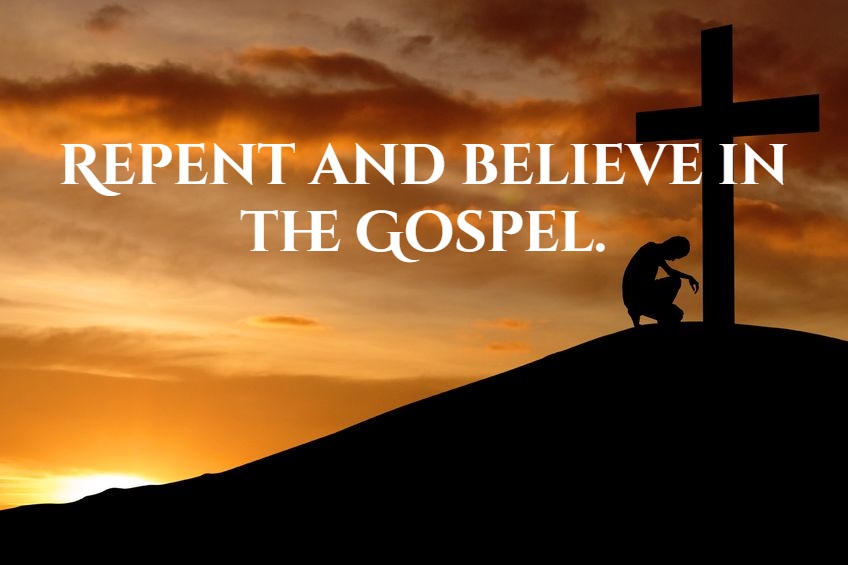“Repent and believe in the Gospel.”
I think, in general, as a people, we are allergic to repentance.
The year was 2012, and it was the first year that we used the revised translation of the Roman Missal. On Ash Wednesday, as I do every year, I used both of the prescribed verses when applying ashes: “Remember you are dust, and to dust you shall return” and “Repent and believe in the Gospel.” The latter of which is taken from the end of today’s Gospel reading. I got two rather vivid complaints from people to whom I used that latter verse, which ran something along the lines of “why would you tell me to repent?”
The systemic nature of this allergy to repentance is magnified by the fact that almost anything is permissible these days: aborting a baby at full term, having illicit relationships, lying in public office, inciting violence, mass shootings, rampant crime, and so many more. These are all pervasive; they never go away, and every day they just get worse.
On the other hand, repentance is almost discouraged by a cancel culture that refuses to forgive anyone for any mistake, intended or unintended. No one is allowed a second chance, no one is ever encouraged to turn over a new leaf. As the late Cardinal George once said, “contemporary culture permits everything and forgives nothing.” He was a wise observer of contemporary humanity.
Nevertheless, Jesus is clear in our Gospel today: “Repent and believe in the Gospel.” Because our God is a God who encourages repentance. He wants everyone to come to salvation, but justice demands that salvation requires a heart ready to receive it; justice requires repentance.
Repentance is easy, but it’s also incredibly hard. It’s hard because we are of this society allergic to repentance. It’s hard because we believe everything is “okay for me.” It’s hard because we have been conditioned to look out for number one, to “be true to yourself,” to do what seems right to you. But there is such a thing as eternal Truth, which our society also does not recognize, and that Truth reminds us that some things are always wrong, and we must abandon the notion that some times everything is okay. So repentance requires what the Greek language calls “metanoia,” which means literally turning around and going in the other direction, in this case, going toward the Truth, who is our God.
So we have to apologize, we have to stop doing the wrong thing, and we have to turn back to God who is always waiting for us. That’s repentance. That’s what justice demands, and that’s what salvation requires.
I said repentance was easy, but also hard. It’s easy because all we need to do is turn back to him. And we can do that by coming to confession and receiving the Lord’s forgiveness. We can do that in our prayer life by turning our thoughts and affections to him. One of my favorite ways to put myself into God’s presence is to pray the Jesus prayer: “Lord Jesus Christ, Son of God, have mercy on me, a sinner.” It’s an ancient prayer of the Church, it’s a good act of contrition, and it’s a wonderful mantra to pray over and over in times of temptation, fear, or frustration. It’s a wonderful way to open ourselves up to repentance.
Friends, those people who were mad at me in 2011 didn’t realize it, but we all need to repent. Even me; maybe even especially me. We all have times when we’re headed in the wrong direction. And on those times we need to turn around, to turn back to God, to repent, to confess our sins, and to accept the love and healing grace that our God offers so freely.
If during Lent you do nothing else, please learn to accept the need for repentance. Society may forgive nothing, but our God forgives everything, if we turn back to him with all our heart, and that’s all he wants. Give God your heart this Lent and see what he does with it.
Repent and believe in the Gospel.
